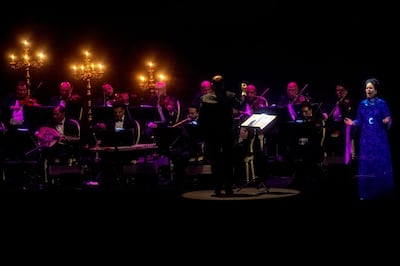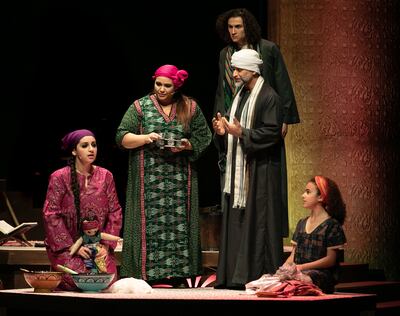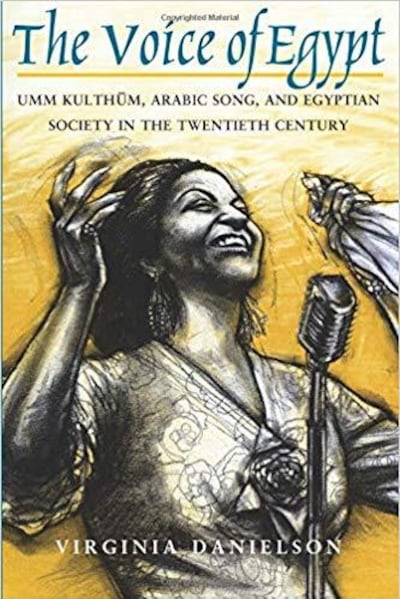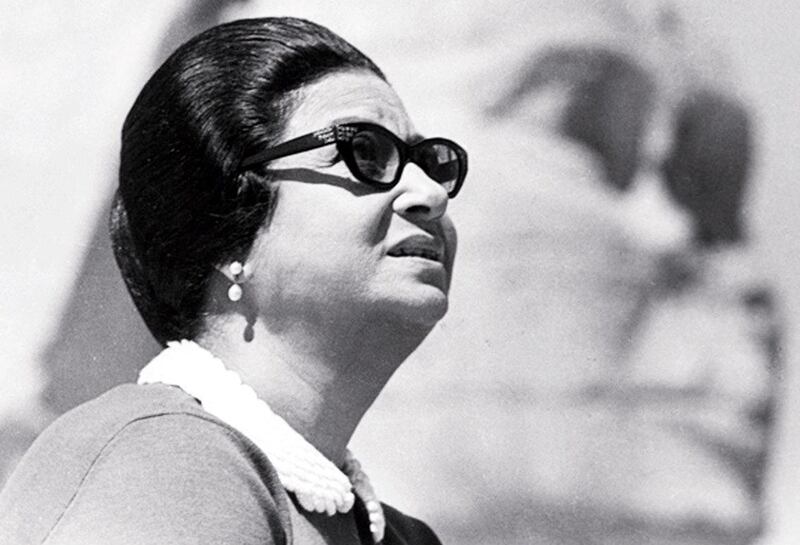Nearly 50 years since her death, Umm Kulthum remains deeply woven into Arab pop culture with her story told across various mediums.
Next up will be on the big screen as the announcement of a new biopic about her is in the works with Egyptian actress Mona Zaki in the prized role.
Titled El Set (an Arabic nickname for the singer that means The Lady), the film will be directed by Marwan Hamed (The Yacoubian Building) with a screenplay provided by Ahmed Mourad.
The film is one of 14 Egyptian titles announced on the establishment of Big Time Investment Fund, a partnership with the Saudi General Entertainment Authority and the Egyptian Ministry of Culture, that aims to support the production of Saudi and Egyptian films.
With the high-powered support and talent involved, there are good chances El Set will become a hit because Umm Kulthum's heroic story is worthy of a blockbuster.
Born Fatima Ibrahim as-Sayed El-Beltagi in December 1898 in the village of Tamay e-Zaharya, near the Nile Delta, Umm Kulthum had an extraordinary life that not only challenged societal norms – as a child, she once entered a talent contest dressed as a boy to avoid controversy – but also inspired the likes of former Egyptian King Farouk and his pan-Arabist successor Gamal Abdel Nasser.
With such a life, it is understandable that her story has inspired creatives for generations. Here is how the singer has been portrayed over the years.
In hologram

In one of the many "firsts" of her career, Umm Kulthum became the star of the first public concert by a hologram in the Arab world in 2019.
The late diva was painstakingly recreated for a greatest hits concert that was part of Winter at Tantora festival in the Saudi Arabian desert city of AlUla in January. The show later came to the UAE with performances at Dubai Opera.
Online
Thankfully, the music has been preserved with dozens of songs available for streaming on YouTube, via the record label Mazzika. Online music platforms such as Apple Music and Spotify also have plenty of playlists dedicated to the singer.
On television and film
Arab viewers were riveted by the 1999 television drama series Umm Kulthum. One major reason why was the career-defining portrayal of the diva by the Egyptian actress Sabrine.
Such was the accuracy of her performance that she provided technical assistance to the team creating the Umm Kulthum hologram to ensure they nailed all her stage movements and mannerisms.
When it comes to the big screen, the Iranian film Looking for Oum Kulthum premiered at the Toronto International Film Festival in 2018. Directed by Shirin Neshat, it examines the emotional strain and sacrifice that came with Umm Kulthum's trailblazing career.
On stage

In 2020, theatregoers at London's West End were introduced to the singer's momentous work.
Premiering at the London Palladium, Umm Kulthum and the Golden Era followed the artist’s transformation from a poor and insecure child prodigy to becoming one of the Arab world’s biggest stars, overcoming gender and class barriers.
“I would organise many events focusing on Arabic culture, including music, film and fashion, and I can’t tell you how many times people would say how much they admired Umm Kulthum,” playwright Mona Khashoggi told The National in 2022.
"It got to a stage eventually where I remember saying two years ago that the Arab world needed our own musical to celebrate our culture and people like Umm Kulthum, and someone replied: ‘Well, why don’t you do it then?’”
In books

Unsurprisingly, Arabic biographies of Umm Kulthum are too numerous to count.
While English options are limited, there have been quality essays, articles and books written about her.
This includes 1997’s The Voice of Egypt: Umm Kulthum, Arabic Song and Egyptian Society in the Twentieth Century. Written by historian Virginia Danielson, the accessible text examines the singer's art and its impacts on all strata of Egyptian society.
A fascinating passage in the book details the creative process behind Umm Kulthum's songwriting process. The various revisions she undertook with her team of composers and lyricists meant that some songs took up to a year to complete.
Another worthwhile read is 2013's Umm Kulthum: Artistic Agency and the Shaping of an Arab Legend, 1967-2007. It is written by US academic Laura Lohman and examines Umm Kulthum's final decade, from the aftermath of the Six-Day War in 1967 to her death in 1975.







